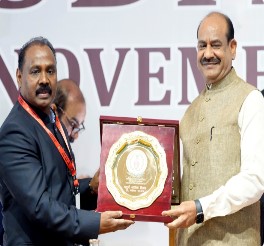India has one of the best airfare regimes; there should be no ‘gouging’: Akasa Air CEO
Istanbul, Jun 7 (PTI) India has one of the best airfare regimes in the world, but there should not be “gouging” in terms of ticket prices to take advantage of a particular situation, according to Akasa Air CEO Vinay Dube.
His comments come against the backdrop of concerns about a steep rise in airfares in certain routes amid capacity reduction due to the Go First crisis and higher travel demand, and the government asking airlines to devise a mechanism to ensure a reasonable ticket pricing system.
India is one of the world’s fastest-growing aviation markets, and domestic air traffic is recovering strongly after the coronavirus pandemic.
Dube, also the founder of Akasa Air, said the civil aviation ministry has an excellent point in terms of gouging and is not talking about average fares in India, like equivalent to USD 45 or 50, which is too high.
“Gouging is what the government is worried about… as an airline fraternity, we should ensure that there is no gouging,” Dube told PTI in an interview in Istanbul.
He explained that gouging is a particular term used when anybody really jacks up the price of something to take advantage of a particular micro-environmental situation.
“Gouging is just not a good thing. The airfares on an average in India are the most customer friendly in the world in any kind of sizeable aviation economy. The Indian consumer average has one of the best airfare regimes you can find anywhere in the world. That is a fact and we have some of the cheapest average fares anywhere in the world,” he pointed out.
On June 5, the ministry asked airlines to devise a mechanism to ensure reasonable airfares amid a surge in air ticket prices, particularly on certain routes that were earlier served by Go First.
Airlines have been asked to self-monitor airfares on routes that have seen a considerable rise in ticket prices and also to devise a mechanism to ensure reasonable pricing within the high RBD (Reservation Booking Designators).
Airfares are deregulated and pricing runs on multiple levels.
Go First stopped flying from May 3 and the reduction of capacity due to the crisis at the budget airline has come at a time when the peak domestic air travel period was round the corner.
About arguments in certain quarters that mostly airfares are based on algorithms, Dube said he can assure that there is no algorithm in the world where 100 per cent of the pricing and inventory decisions are taken by a piece of software, at least not today.
“When that day comes you can programme anti-gouging techniques into that as well. There is no sort of middle ground for it and it is all extremely manageable.
“You just have to believe that you can get airfares to a certain level that can still provide a lot of consumer benefits and you can raise them to a certain level without gouging. Nothing complicated about it,” the Akasa Air chief said.
The airline, which started flying in August last year, has 19 aircraft and the 20th plane is to join the fleet in July.
Dube said Akasa Air will place a “triple-digit order” for narrow-body planes before the end of this year and asserted that nothing is done at the airline for the short term.
After having 20 planes in its fleet, the carrier expects to commence international operations by the end of 2023. It expects to have a total of 72 planes by March 2027.
The airline is looking at destinations in Southeast Asia, the Middle East, Nepal, Bangladesh and Sri Lanka, among others, but is still in discussions with the government on the possible destinations.
In April, Akasa Air carried 5.13 lakh passengers and had a market share of 4 per cent, as per official data.








